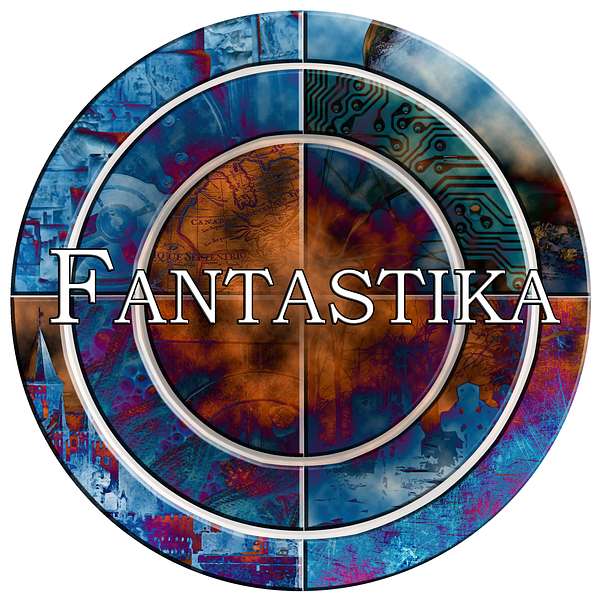
Fantastika Journal
Fantastika Journal
Detoxifying Male Fantasy
This podcast is part of the LGBTQIA+ Fantastika Graphics Symposium.
Join the discussion on discord (https://discord.gg/k7AagGf4v5) or on our zoom webinar on 20 Nov 2021. See fantastikajournal.com for details.
Background music by scottholmesmusic.com
Podcast by: Emma French
Detoxifying Male Fantasy:
Genre-Savviness and Desire in the Worldbuilding of DIE
This podcast examines how the worldbuilding of DIE (2019-) by Kieron Gillen, Stephanie Hans, and Clayton Cowles attempts to detoxify fantasy: that is, how it challenges male-dominated fantasy canon and gatekept fantasy fandom.
Pitched as ‘Goth Jumanji’, DIE’s premise – where teenagers disappear into their fantasy tabletop roleplaying game (TRPG), and are then forced as adults to return – allows for a self-conscious and self-reflexive approach to the tropes of gaming and fantasy.[1] By utilising TRPG fan culture as a framework, DIE is allowed to build genre-savviness into its worldbuilding.
Ryan Vu argues that, by formalising genre convention into game systems, TRPGs provide players with ‘an unprecedented set of tools for analysing their [own] genres’.[2] Gillen’s description of DIE as an exploration of fantasy and gaming’s history seemingly supports this reading: ‘there’s a lot of history, postmodernism and even nostalgia […] but it’s not a book which is interested in being comforting’.[3]
This podcast examines how successfully DIE utilises ‘uncomfortable’ reflexiveness to deconstruct the toxic, typically cis- and straight male image that fantasy fandom often projects. The focus of this examination is on the bisexual protagonist, Dominic Ash: an AMAB person who, when in the secondary world of DIE, inhabits a cis female body and conducts relationships with men, something they do not do in the ‘real’ world. Although the main character can also be read as trans, this podcast focuses on their bisexuality. This podcast examines Ash’s negotiation of their sexual orientation, and their relationship to DIE’s gamemaster, Sol, as a representation of fantasy and TRPG culture’s changing relationship to toxic masculinity.
[1,2,3] see programme on Fantastikajournal.com for reference details
About the Speaker: Emma French (she/her) is currently studying for a PhD in Fantasy Literature at the University of Glasgow. Her thesis examines how Dungeons & Dragons consolidates notions of fantasy, while also giving players agency to subvert genre convention. She is a member of the Glasgow International Fantasy Conversations committee, and an editor at Mapping the Impossible: Journal for Fantasy Research.
Disclaimer: The information and ideas in these podcasts are the property of the speakers. Fantastika Journal operates under the Creative Commons Licence CCBY-NC. This allows for the reproduction or transcription of podcasts for non-commercial uses, only with the appropriate citation information. All rights belong to the author.
The views expressed in these podcasts do not necessarily reflect the opinions of Fantastika Journal and its editorial board.
This podcast edited by Kerry Dodd